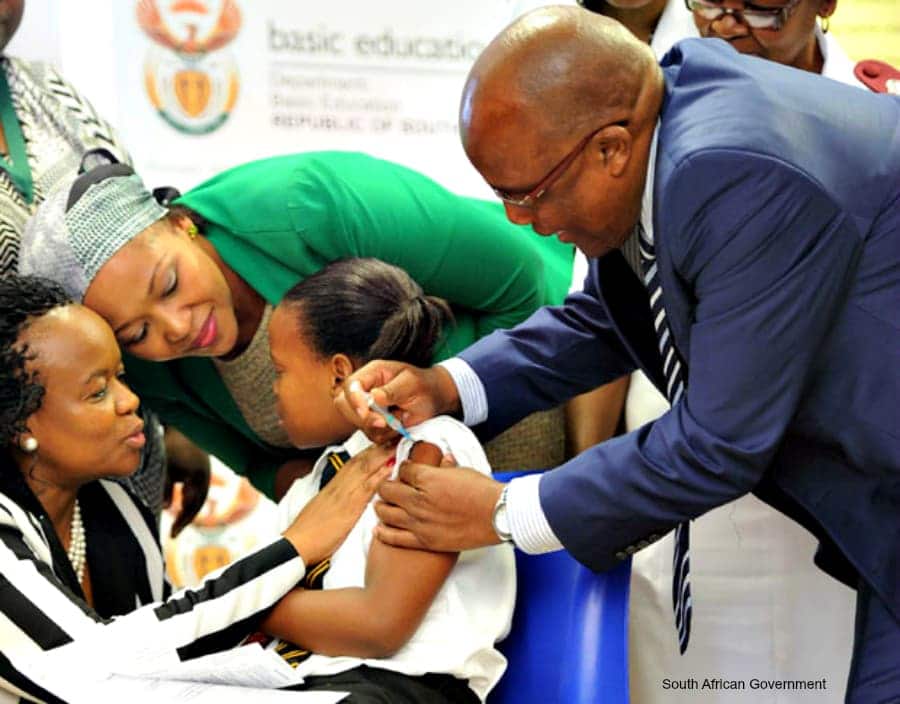TAC attacks Bonitas ARV decision
The decision by Bonitas to courier antiretroviral drugs to its HIV positive members instead of letting them pick it up from a pharmacy is ‘totally unacceptable’, says the Treatment Action Campaign.
‘Pharmacists play an important role in conveying information about medication to patients. This means that there will be no proper monitoring of Bonitas members on ARVs,’ said TAC spokesperson Nathan Geffen.
The decision has also been questioned by the United SA Pharmacies (USAP), which had been providing ARVs to patients at cost plus R50 per line item to patients on the Aid for AIDS programme.
‘The decision deprives patients of the right, which they should be entitled to exercise freely, to have the benefit of face-to-face interaction with trained professionals,’ said USAP chairperson Julian Solomon.
‘This is essential where ARVs are concerned. With certain drugs, even a single missed dosage can reduce the efficacy rate by half.
Solomon added that Bonitas’s decision also ‘violates a longstanding arrangement’ that USAP would be service providers for Aid for AIDS.
‘There was no indication from Aid for AIDS that any dissatisfaction with the arrangement existed and if there was, this should have been communicated to us,’ said Solomon.
According to the new procedure, Bonitas members have to get their medication couriered to them from a company call Pharmacy Direct.
This was communicated to Bonitas members late last year and came into effect on 1 January.
However, Bonitas staff advising members on the scheme’s toll free number said they did not know about the decision. Numerous attempts to get Bonitas management to comment on the matter were frustrated by unanswered telephones, messages not returned and repeated referrals back to the toll free number.
Meanwhile, Bloemfontein pharmacist Jannie Naude reported that a Bonitas member had his prescription for emergency ARVs for his baby exposed to HIV positive blood refused because Naude’s pharmacy was ‘no longer a designated service provider for ARVs’.
‘The courier service, which takes 24 hours, was not an option as the medicine has to be administered preferably within one to two hours of exposure,’ said Naude.
‘The customer then had to pay the R500 out of his own pocket. What would have happened if he didn’t have money?’
Port Elizabeth pharmacist Rajen Ranchod said he had build up trust with patients on ARVs through the Aid for AIDS programme and questioned whether such a relationship could be built up with a ‘courier pharmacy’.
E-mail Kerry Cullinan
Author

Kerry Cullinan is the Managing Editor at Health-e News Service. Follow her on Twitter @kerrycullinan11
Republish this article
This work is licensed under a Creative Commons Attribution-NoDerivatives 4.0 International License.
Unless otherwise noted, you can republish our articles for free under a Creative Commons license. Here’s what you need to know:
You have to credit Health-e News. In the byline, we prefer “Author Name, Publication.” At the top of the text of your story, include a line that reads: “This story was originally published by Health-e News.” You must link the word “Health-e News” to the original URL of the story.
You must include all of the links from our story, including our newsletter sign up link.
If you use canonical metadata, please use the Health-e News URL. For more information about canonical metadata, click here.
You can’t edit our material, except to reflect relative changes in time, location and editorial style. (For example, “yesterday” can be changed to “last week”)
You have no rights to sell, license, syndicate, or otherwise represent yourself as the authorized owner of our material to any third parties. This means that you cannot actively publish or submit our work for syndication to third party platforms or apps like Apple News or Google News. Health-e News understands that publishers cannot fully control when certain third parties automatically summarise or crawl content from publishers’ own sites.
You can’t republish our material wholesale, or automatically; you need to select stories to be republished individually.
If you share republished stories on social media, we’d appreciate being tagged in your posts. You can find us on Twitter @HealthENews, Instagram @healthenews, and Facebook Health-e News Service.
You can grab HTML code for our stories easily. Click on the Creative Commons logo on our stories. You’ll find it with the other share buttons.
If you have any other questions, contact info@health-e.org.za.
TAC attacks Bonitas ARV decision
by Kerry Cullinan, Health-e News
April 19, 2005



